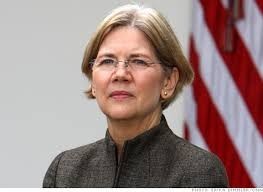WASHINGTON (MarketWatch) — Sen. Elizabeth Warren, New York Mayor Bill de Blasio and Nobel Prize winning economist Joseph Stiglitz offered proposals to address income inequality, an issue that’s already a major one for the upcoming election.
In a new report, Stiglitz, chief economist at the Roosevelt Institute in Washington, took aim at the lack of regulation within the financial industry, executive compensation, international free trade agreements, diminishing labor standards and generous tax rates for the wealthy, among other traditionally liberal causes.
The report indirectly aims to portray the Democratic Party in a more progressive light and shift the long-term campaign narrative to the left.
Stiglitz, helming the group of economists and lawyers that included Robert Solow, another Nobel-winning economist, broadly criticized the last 30 years of U.S. economic policy, sometimes called the neoliberal doctrine, marked by financial deregulation and increased privatization.
He dubbed this period a “failed experiment,” calling specific attention to stark differences in income levels among Americans. “It’s time to try something new,” he said.
The report proposes capping the size of big banks and financial institutions and ending the assumed public insurance policy of “too big to fail.” It also advocates for stricter penalties for banks that break rules and for new schemes of CEO pay.
Among the bolder of the report’s recommendations is a financial transaction tax.
“Before 1975 the financial sector charged a fixed brokerage commission on trades that, for consumers, functioned like a tax,” Stiglitz writes. “There is little evidence that the elimination of this fee improved financial markets.”
The event hosted two of the biggest progressive stars in U.S. politics, Sen. Warren, the Massachusetts Democrat, and Mayor de Blasio.
Warren called for an end to the so- called trickle down economic theories that seek fewer taxes and restrictions on wealthy individuals and institutions. “These advocates push for deregulation that hobbles the cops on Wall Street,” she said.
Warren also took an indirect swipe at President Barack Obama’s trade agenda, specifically the Trans-Pacific Partnership, a far-reaching deal among the U.S. and several Pacific Rim nations, though she didn’t mention it by name.
“Americans have taken the brunt of bad trade deals,” she said.
The Senate planned to vote Tuesday, at least preliminarily, on whether to give the president “fast track” authority to speed ratification of any deal.
“We have to work so that the balance is not tilted against workers and toward multinational corporations,” Warren said.
Warren has declined entreaties from supporters who want her to run for president.
De Blasio — who like Warren, has yet to back the presidential campaign of front-runner Hillary Clinton — argued that while the federal government has resisted reforms that would decrease inequality between the rich and poor, local governments have moved ahead and are taking action.
“City councils across the country are leading the way,” he said. “Our current condition was created by the wrong choices and the wrong policies. It was not an act of god.”


